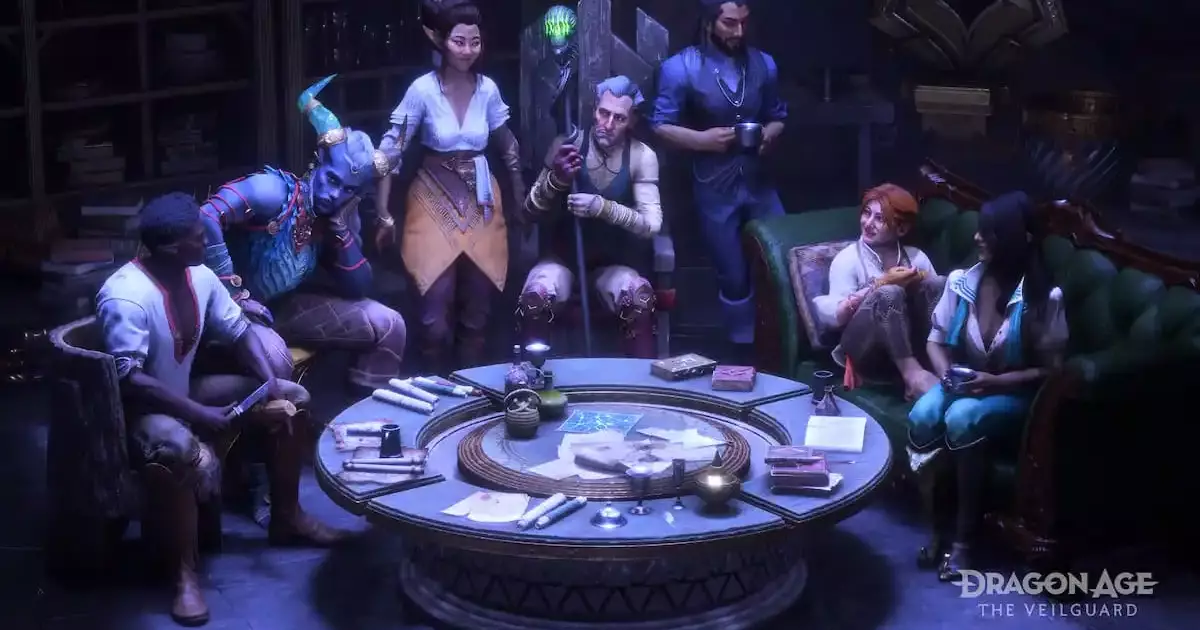The Dragon Age series has been a defining franchise for fantasy role-playing games since its inception. One of the more compelling elements of its world-building is the inconsistency that can at times bewilder players. In contrast to many other fantasy RPGs that present a polished, interlinked lore, Dragon Age invites exploration through the eyes of multiple factions, each with their distinct beliefs and narratives. This divergence starts with the fundamental truths about Thedas, the game’s richly detailed setting, which are perceived differently by humans, elves, and qunari. This intrinsic discord creates conflict and drives the plot—a unique feature in an industry often characterized by neatly packaged lore.
At the heart of Dragon Age’s narrative is the concept of perspective. Each race inhabiting Thedas brings its own history, shaped by cultural narratives and traditions. Human characters might present their version of history through a colonial lens, often dismissing the tales of elves, who speak of a fallen golden age, or the qunari, who view the world through a rigidly structured societal framework. David Gaider, the former lead writer for the series, indicated that this facet of storytelling was intentional—a layered approach to narrative development that embodies the complex tapestry of Thedas. In an interview with Eurogamer, Gaider elaborated that players must navigate these differing accounts, often having to choose which stories resonate with them. This engagement encourages players to develop their understanding of the lore rather than merely consuming it.
One of the most intriguing aspects of Thedas is its connection to the Fade, the realm of dreams and magic. Gaider poignantly notes how the truths of the past become increasingly obscured the further one delves into the history of Thedas. As players uncover tales and legends, they encounter layers of bias and fiction, making it difficult to ascertain any absolute truth. “To get the truth, you kind of have to pick between the lines,” he states, emphasizing the inherent ambiguity within these narratives. This layered storytelling establishes a framework that promotes a sense of mystery rather than clarity, creating a universe in which players forge their understanding of events.
Consequently, the player is invited to participate actively in the construction of meaning—where personal beliefs about honesty and deception directly influence one’s interpretation of events. Unlike many games that spoon-feed information or reward players for exploring the codex entries, Dragon Age throws players into a cauldron of conflicting visions and interpretations. The lore becomes a living thing—malleable, open to interpretation, and deeply personal as players sift through the ashes of history in search of truth.
A primary question hangs over the future of the Dragon Age series: will the narrative ever reach a resolution, or will the whims of ambiguity continue to rule? Gaider has hinted at an overarching narrative—an “uber-plot”—that may be unfurled in future installments. The game Dragon Age: The Veilguard, for instance, is anticipated to address several of these lingering questions through the reintroduction of ancient Elven gods, individuals who could possess first-hand knowledge of historical events that shaped Thedas. This potential for resolution poses an exciting conflict for Gaider, who questions whether the decision to uncover these truths could undermine the series’ foundational charm: the allure of what remains unknown.
The tension between the desire for clarity and the joy of mystery is a familiar theme for many narratives and resonates with fans. How much indulgence do we grant ourselves in terms of understanding? Is there a beauty in the unanswerable? The idea of revealing too many secrets risks stripping away the texture that makes the stories compelling. Gaider raises the notion of “Chekhov’s Gun,” suggesting that a narrative must eventually provide answers to lingering questions or risk collapsing under the weight of its own mystery.
The Dragon Age franchise thrives on the surprising turns of its multifaceted world—a setting that opens itself up to mysteries while simultaneously providing players with the freedom to create their own narrative interpretations. While some may find solace in a neatly arranged codex bursting with facts and clarity, others cherish the unpredictable exploration that Dragon Age offers. The conflicting narratives reflect life itself, where truth is often subjective and layered with bias. This dynamic world invites players not merely to participate but to engage deeply, leading to a rich tapestry woven from the perspectives they choose to embrace.
As anticipation builds for Dragon Age: The Veilguard and the revelations it holds, one thing remains clear: the quest for knowledge in Thedas is as exhilarating as it is elusive. Whether players will find resolutions or be left with more questions than answers, the journey itself is sure to be rife with surprises and intrigue.

